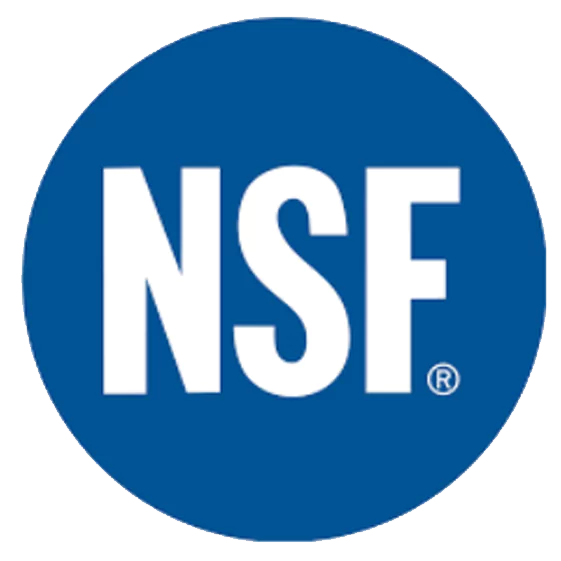Activated carbon manufacturers in India: Southern Carbon
Activated carbon is a form of carbon commonly used across various industries, such as water treatment, air purification, and metal recovery. The adsorbent properties of activated carbon enable it to be a powerful adsorbent that can be used on an industrial scale to remove unwanted substances from gases and liquids to purify the material.
Activated carbon manufacturers in India produce and export activated carbon from raw materials such as coconut shell, wood, coal, peat, etc. Activated carbon companies in India have a huge impact on industries like water treatment and air purification, as activated carbon is an essential element in those industries. Southern Carbon and Chemicals is one of the premium activated carbon suppliers in India, with more than 20 years of trusted service history in the industry.
Activated carbon companies in India
Activated carbon suppliers in India are the backbone of many industries that depend on the adsorbent properties of activated carbon. Activated carbon, also known as activated charcoal, is mainly used to remove undesirable components and debris from water and gas. It can be used for a wide range of applications in various industries that require the removal of pollutants or unwanted materials, including soil remediation and precious metal recovery.
The chemical and physical characteristics of activated carbon can vary greatly based on the raw materials and processing methods used by manufacturers. The varied results based on manufacturing techniques create hundreds of varieties of activated carbon, creating a wide range of possibilities for industrial use. The production of activated carbons for commercial use is mainly focused on achieving optimal results in specific applications.
What is activated charcoal?
So what exactly is activated carbon? It is processed to optimise its adsorptive properties and create a superior adsorbent. It has a remarkable pore structure and a large surface area for capturing and retaining debris and unwanted pollutants, and it can be made from several carbon-rich organic materials, such as coconut shells, papper, charcoal, and wood, among others. Activated carbon companies in India usually use these organic materials as raw materials to produce activated carbon for various industries.
Application of activated carbon
Adsorbents are solid, porous materials that trap pollutant materials on their surfaces. Active carbon’s ability to adsorb pollutants has applications across a wide range of sectors, but here we will discuss the most important applications for activated carbon and the industries that are most influenced by activated carbon manufacturers in India.
Water purification: A major industry that actively uses activated carbon is the water treatment industry. Activated carbon absorbs contaminants and toxins from the water; it is used to treat industrial water treatment, wastewater treatment, groundwater remediation, etc. Apart from filtration, activated carbon is the most adaptable purification technique out there.
Air purification: Another industry activated carbon suppliers in India provide activated charcoal for is the air treatment industry. The application of activated carbon in air purification can be seen in home air filtration systems, face masks, and industrial processing sites. Activated carbon filters are used in air or gas purification to remove odours, vapours, and any other unwanted substances in the gas.
Medicinal use: Activated carbon manufacturers in India also contribute to the health industry. Activated carbon is used around the world to treat poisoning, diarrohea, indigestion, and overdoses. Although it might not be effective in serious cases of poisoning that involve cyanide or arsenic, activated carbon is an effective substance for treating oral indigestion and mild food poisoning.
Agricultural use: Agriculture is also among the industries that activated carbon companies in India contribute to. Wine production and livestock production are two of the agricultural enterprises that mainly use activated carbon. In wine production, activated carbon is used as an adsorbent and processing agent, whereas in livestock production, it is used as an animal feed additive, disinfectant, pesticide, and processing aid.
Metal recovery: Activated carbon manufacturers in India provide activated charcoal for the purification and recovery of rare metals such as gold and silver, which is one of the major industrial applications of activated carbon.
Food and beverage: Activated carbon suppliers in India also supply activated carbon to the food and beverage industry, as it is widely used as a food additive and for beverage purification. As a food additive, activated carbon is responsible for the slightly smokey taste; it is also used as a colouring agent in various food items. Activated carbon filters are also used to purify alcoholic beverages and remove impurities that can affect the quality, taste, colour, and odour of these beverages.
Activated carbon from coconut shell
As we have discussed above, activated carbon plays a crucial role in various industries across the world. It is a highly versatile form of carbon with a vast number of industrial applications.
Activated carbon from coconut shell manufacturers in India uses coconut shell, an abundant and organic raw material, to produce activated carbon that is industry-efficient. Southern Carbon is among the
best activated carbon manufacturers in Kerala, producing high-end activated carbon from organic raw materials.
Kerala is famously known as the land of coconuts; thus, coconut shells are one of the most abundant natural raw materials for activated charcoal production here. Southern Carbon, with more than 20 years of experience, has dominated the Indian market with our superior-quality, industry-efficient activated charcoal made from coconut shells.




